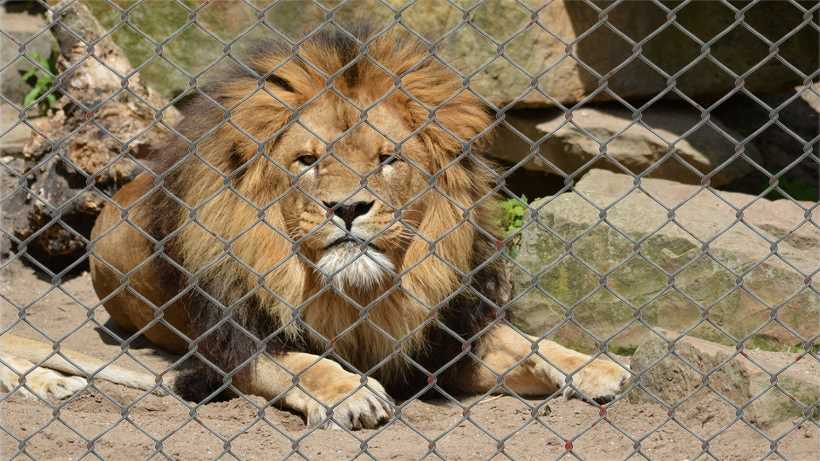Trending How Do Animals Get Zoochosis You Must Look Through
While there is little consensus over what the specific trigger of zoochosis is, the prevailing theme shows that many animals are just not meant to live in captivity. Gorillas are a good example of social animals that when separated from their families, they develop unusual habits like incessant sobbing.

Why Are Zoos Bad For Animals Ideas Puppies Site
Zoochosis is a psychologically dismaying phenomenon that affects animals who are caged in the zoo.

How do animals get zoochosis. That very condition of wild animals is zoochosis. These traits are largely uncommon amongst healthy and happy animals in the wild. The other major cause of zoochosis is when animals are separated from their family.
Are zoos bad for animals health? Animals develop zoochotic behaviors when they are removed from their natural habitats. If playback doesn't begin shortly, try restarting your device.
Animals who demonstrate this behavior are inclined to hurt themselves and even others around them including people. Living without doing things natural to their species, a condition called zoochosis is likely to occur. Animals in zoos and circuses suffer from extreme psychological deprivation and stress.
How do animals get zoochosis? How do animals get zoochosis? This bear is clearly in distress.
How do animals get zoochosis? There is a 96% chance that an elephant is treated poorly in entertainment. Do animals in zoos get depressed?
Zoochotic animals also portray eating disorders such as anorexia. Animals develop zoochotic behaviors when they are removed from their natural habitats. There is nothing “normal” about animals in zoos.animals in captivity across the globe have been documented displaying signs of anxiety and depression.in fact, psychological distress in zoo animals is so.
Animals begin to act strangely and even hurt themselves or others out of boredom and frustration. 75% of animals are abused in the world association of zoos and aquariums. According to the organization circus.
Animals develop zoochotic behaviors when they are removed from their natural habitats. Animals develop zoochotic behaviors when they are removed from their natural habitats. Zoochosis often happens when animals are kept in small enclosures and when they do not get enough mental exercise.
Like orcas, it's time to look at the emotional lives of other various species that do simply not thrive in captivity. According to temple grandin and catherine johnson, authors of animals make us human, these behaviors, “ almost never occur in the wild.” in captivity, these behaviors are so common that they have a name: When kept in captivity, animals are deprived of the ability to express their natural desires and the effect this can often have on their mental and emotional health is tragically clear in the form of zoochosis.
Gorillas are a good example of social animals that when separated from their families, they develop unusual habits like incessant sobbing. The behavior shown by animals held captive is far from the natural ways in which they act in the wild. The video above shows a black bear in captivity acting in unnatural ways.
Born free’s 1993 zoochotic report film, using more than three years of video observations in over 100 zoos in europe, north america and the far east, raised serious. The “surplus” animals in zoos are often killed, even if they are healthy. Zoo breeding programs, which are overseen by the association of zoos and aquariums’ animal exchange database, move animals around the country when they identify a genetically suitable mate.
The condition is made much worse in zoos with poor living conditions or abusive keepers. “zoochosis,” or psychosis caused by. Gorillas are a good example of social animals that when separated from their families, they develop unusual habits like incessant sobbing.
These are just a few of the types of animals who are regularly affected by “ zoochosis ,” a disturbing psychological condition that often affects captive animals: Do animals get treated badly in zoos? The other major cause of zoochosis is when animals are separated from their family.
zoochosis is a short documentary that investigates how animals experience living in a stressful and unnatural environment, and how it affects their mental and natural life. The other major cause of zoochosis is when animals are separated from their family.

Petition · Animals in Captivity Are Zoos Acceptable

Pros and cons of zoos Should animals be kept in zoos

Zoochosis A short documentary by Nanna Påskesen —Kickstarter

40 Adorable & Terrifying Facts about Zoo Animals Fact

Zootopia 7 facts about the zoos the good, the bad, and

Polar Bear in Captivity Zoochosis « Inhabitat Green

40 Adorable & Terrifying Facts about Zoo Animals Fact

What Is Zoochosis and How Do Animals Get It?

This Black Bear in Bahria Orchard Zoo Suffering from

Here is an update on the black bear suffering from
Zoochosis Documentary Nanna Paskesen
10 Bizarre Facts About Zoos Listverse

Zoochosis The living conditions of animals in captivity

For now I am working on getting an interview with a

42 best Horrors in the animal world. images on Pinterest

Zoochosis What Really Happens to Animals in Captivity



Post a Comment for "Trending How Do Animals Get Zoochosis You Must Look Through"